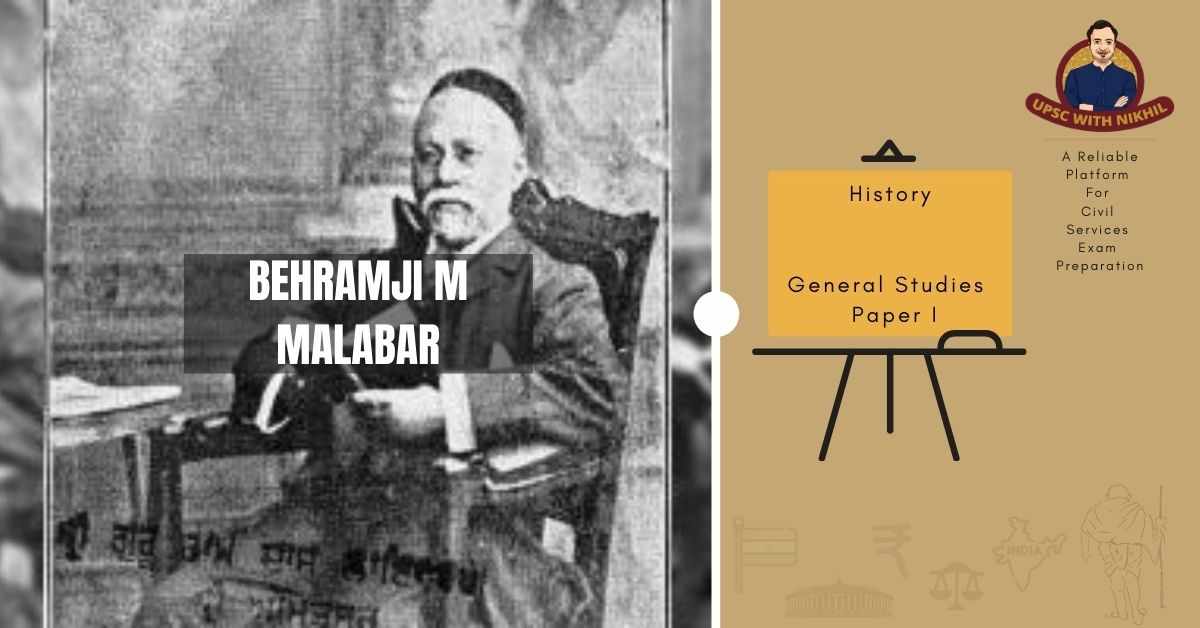Behramji M Malabari
Behramji Merwanji Malabari was born in Baroda on May 18, 1853. (present-day Vadodara, Gujarat). Dhanjibhai Mehta, a Parsi clerk employed by the Baroda State, and Bhikhibai were his parents.
Merwanji Nanabhai Malabari, the childless owner of a drugstore that traded in sandalwood and spices from the Malabar Coast, took him in and called him 'Malabari.'


In 1885, he founded Seva Sadan. This humanitarian organisation was dedicated to the welfare of the socially vulnerable, especially women. He was also against child marriage and forced widowhood.
• Malabari became well-known in the United Kingdom for his work advocating for women's rights, especially the rights of Hindu widows.
• Malabari wrote not only editorials in his own magazine, but also letters to the editors of The Times, about the case of Rukhmabai, a child bride who was ordered to live with her husband in 1885.
• The case piqued the attention of Florence Nightingale and Max Müller, who both wrote commentary on it.
• Malabari's reforming position influenced India's passage of the Age of Consent Act in 1891.
• Malabari visited the United Kingdom in 1890. In 1893, he published ‘The Indian Eye on English Life; or, Rambles of a Pilgrim Reformer’, which chronicled his journey and observations of British life.
• Behramji, who was born with a curious and inquisitive mind, developed an early interest in journalism and literature.
• In 1875, he published ‘Nitivinod’ (Pleasure of Morality), a compilation of Gujarati poems he wrote and published.
• Alfred Tennyson, a brilliant and eminent English poet at the time, praised and appreciated his literary work 'The Indian Muse in English Garb' in 1877.
• Malabari was also instrumental in the translation of Max Müller's Hibbert Lectures into Indian languages, as he believed the Hindu priesthood was misinterpreting the Vedas and Upanishad.
• Malabari himself performed the Gujarati translation at Müller's request, with the aid of N. M. Mobedjina.
• Malabari then tried to get the lectures translated into other languages (including Marathi, Bengali, Hindi, and Tamil), and spent a lot of time searching for translators and funding.
• Malabari attended the Indian National Congress in Bombay in 1885, and "he was a nationalist" and "had a close friendship with Dadabhai Naoroji," one of the Congress's founders and leaders, despite his distancing himself from the organisation.


